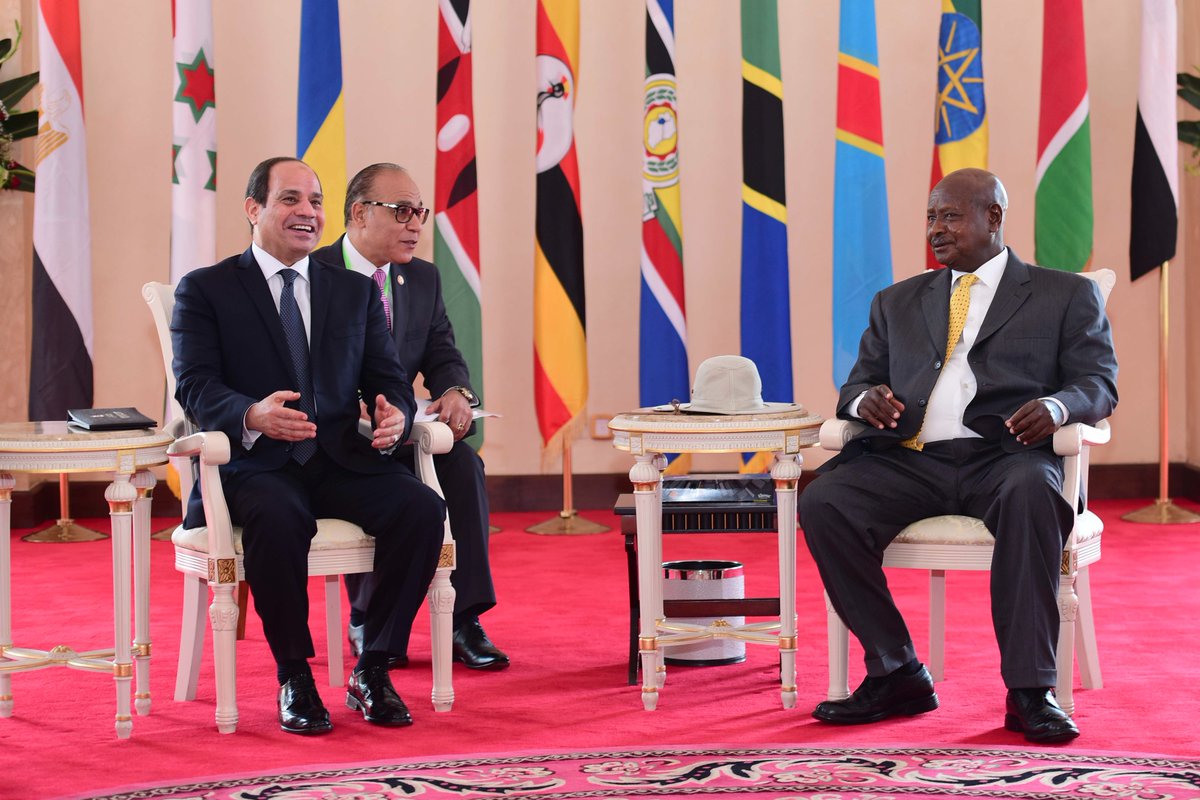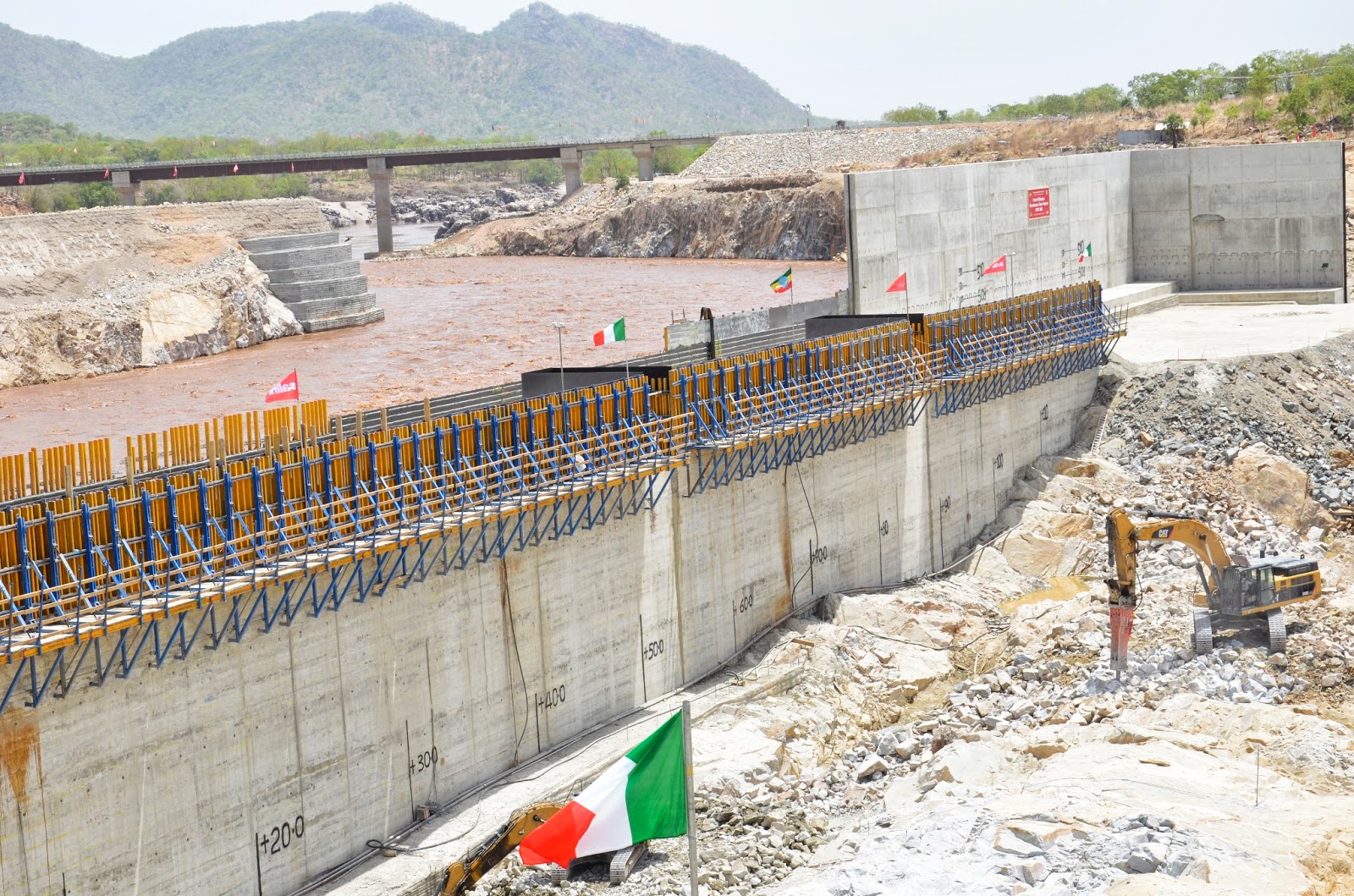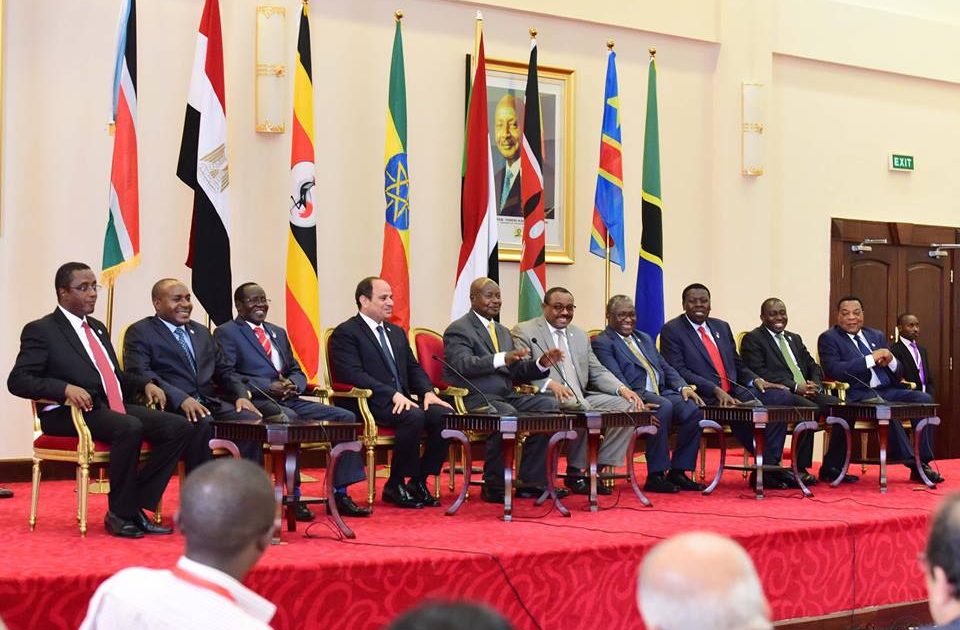Shocking details have emerged of why Nile Basin heads of state summit hosted by President Museveni ended on Thursday with no clear deal on how the countries are to share the waters of River Nile.
We have learnt from our sources at State House that a new Egyptian proposal could have caused the two day summit to end with now deal as the countries involved did not agree with the proposal.
The two-day deliberations in Kampala and Entebbe were aimed at rallying all the 11 Nile Basin countries to own the controversial Entebbe Agreement also known as the Nile Basin Cooperative Framework Agreement (CFA).
The meeting at State House Entebbe was attended by President Museveni, Egyptian President Abdel-Fattah el-Sissi and Ethiopian Prime Minister, Hailemariam Desalegn Boshe.
The summit was expected discuss and agree on the dispute resolutions mechanisms and also agree on some of the contentious issues under the Nile Basin Cooperative Framework. It was also expected that Egypt and Sudan would at the end agree to append their signatures to the Nile Cooperative Framework.

However, days before the summit, a local Egyptian newspaper Al-Shorouk, revealed that Egypt was preparing to present a document asan alternative of the Entebbe Agreement signed in 2010, that would include the governing principles of managing the Nile River based on the international law of international rivers, such as the fair and equitable use of water and harmlessness. Uganda, Kenya, Rwanda, Ethiopia, Tanzania and Burundi signed the Entebbe Agreement, which manages water rights among other issues on the Nile. The agreement has been in place since 2010 but Egypt and Sudan have persistently declined to sign it in protest of clauses rearranging River Nile water allotments.
Egypt’s new agreement outlines principles, rights, and obligations for cooperative management and development of the Nile basin water resources. Rather than quantifying “equitable rights” or water use allocations, the treaty intends to establish a framework to “promote integrated management, sustainable development, and harmonious utilisation of water resources of the Nile basin, as well as their conservation and protection for the benefit of present and future generations.”
For this purpose, the treaty envisages the establishment of a permanent institutional mechanism, the Nile River Basin Commission (NRBC). The commission would serve to promote and facilitate the implementation of the CFA and to facilitate the cooperation among the Nile basin countries in the conservation, management, and development of the Nile basin and its waters.
An official in the Egyptian government told local media that Egypt will never change its position about the agreement and will not join the agreement in its current text.

Professor of water resources at Cairo university Nader Nour El-Din told Daily News Egypt that Ethiopia still trying to convince the other Nile Basin countries to join the agreement, but Egypt has many remarks on the agreement.
Upstream countries do not believe in any agreements signed before the Entebbe Agreement in 2010; however, Egypt calls for respecting and committing to the historic agreements. The Nile River receives nearly 3.9% of the sum of water resources in upstream countries and the rest is wasted water, but if the Nile basin countries cooperated, this will lead to collecting nearly 100 billion square metres of water, he added.
Also, he added that Ethiopia insists in refusing and removing the principle of previous notice to downstream countries before any projects over the river, and Egypt refuses the principle of the absolute sovereignty on the common resources.
“The only way out of the upcoming water wars is to agree halfway, which takes into consideration the benefit of all parties,” the professor of water resources said.
After the meeting, Egypt’s president laid out concerns over his country’s share of the Nile waters, urging leaders of the river’s basin countries to work together toward a more efficient use of their resources.

The Presidents of Tanzania, Kenya, Burundi, Rwanda, Eritrea, Sudan and Democratic Republic of Congo did not attend the summit though they were represented by their ministers.






